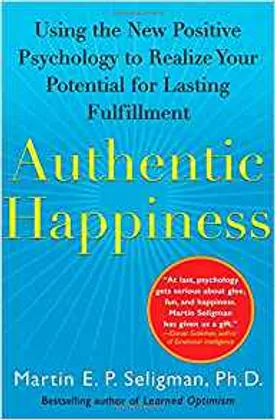Martin Seligman
Martin Seligman is one of the most influential positive psychologists in the world, and his books have helped millions of people lead happier and more fulfilled lives. Seligman has written extensively on topics such as the power of positive thinking, finding meaning in life, and boosting well-being. His foundational theories and concepts have shaped the field of positive psychology, as well as how we understand the best ways to cultivate happiness.
Seligman was born in Albany, New York in 1942. He studied psychology at Princeton University, where he received his BA and then his MA and PhD. After college, he worked for the US government researching the prevention of suicide until he began teaching at the University of Pennsylvania in 1968. In the late 1960s and early 70s, Seligman began to study learned helplessness in dogs, which would be the basis for his most famous theory. After this, Seligman began to expand his research to include human behavior, which is where his focus to this day remains.
Seligman's first book was "Helplessness", which was published in 1975. He wrote this book in an attempt to expand his research on learned helplessness to explain why humans might also suffer in this way, when faced with difficult situations. Seligman's research ultimately concluded that, rather than humans being predisposed to helplessness, humans most often adapt to their environments, using strategies like learned optimism and positive reframing.
This research was the basis for Seligman's next book, "Learned Optimism" (1990), which was a best-seller. In this book, Seligman outlined his interpretation of learned helplessness and discussed how a person can use techniques such as positive self-talk, goal-setting, and looking for the silver lining in difficult situations, to become more optimistic. He also explored how people can benefit from developing a sense of purpose and meaning in their lives.
Seligman's third book, "Flourish" (2011), focused on the concept of positive psychology, which he first named. In this work, Seligman examined the effects of positive emotions, such as joy and contentedness, on health, relationships and overall well-being. He coined the term “Signature Strengths”, referring to unique and innate qualities every person possesses that they use to better their lives. To support this idea, Seligman included his own psychological research, as well as numerous interviews with experts in the field.
Seligman's fourth book, "The Hope Circuit" (2018), explores the universal experience of facing despair and depression, as well as how to live a more fulfilling life. In this work, Seligman examines how emotional skills such as resilience, optimism, meaning-making, and personal transformation, can be developed and applied in personal and professional settings. Seligman also stresses the importance of surrounding yourself with hope in order to be happy and successful.
Throughout his career, Seligman has focused on understanding, researching, and teaching his theories on positive psychology and human behavior. His books have had a great impact on many people, and they are still widely read today. Seligman should be celebrated for his pioneering work, which continues to be instrumental in helping people lead happier and more meaningful lives.

